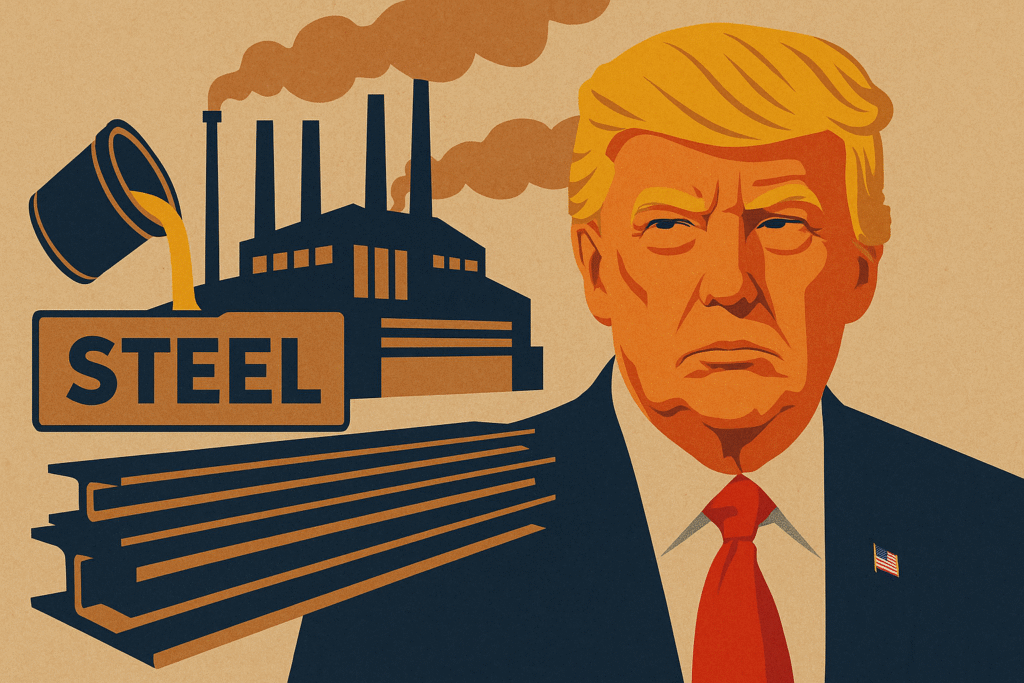Washington, D.C. — The Trump administration’s use of a “golden share” to approve the $14.9 billion sale of U.S. Steel to Japan’s Nippon Steel has unsettled dealmakers and global investors, raising fears it could signal a new precedent in how politically sensitive foreign takeovers are handled in the United States.
Announced last week, the agreement allows the U.S. government to hold a perpetual golden share in U.S. Steel, granting it veto power over key corporate decisions, including delays to Nippon’s investment commitments, closure of plants, and changes to raw material sourcing. Notably, this golden share does not include an equity stake, according to Commerce Secretary Howard Lutnick.
The transaction ended 17 months of tense negotiations and was especially sensitive due to U.S. Steel’s iconic role in American industry and its headquarters in Pennsylvania, a pivotal swing state.
“This is not about economics, this is about control,” said Stefan Selig, a former U.S. Under Secretary of Commerce. “To cede negative control to the U.S. government… is a real accommodation.”
A One-Off or a New Norm?
While the White House insists the golden share in U.S. Steel is a “one-off”, its implementation has sent ripples through the M&A community, prompting concerns that the Trump administration may increasingly use this tool to advance its “America First” investment agenda.
“Multinational companies are watching closely,” said George Casey, global chair for corporate at Linklaters. “They want clarity on how this will impact future U.S. investments and transactions.”
Though golden shares are rare in the U.S., several European nations — including the UK, France, and Italy — routinely use them to maintain influence over privatized companies in strategic sectors such as defense, energy, and telecoms.
In this case, the golden share was key to reversing a Biden-era block on the deal. The Committee on Foreign Investment in the U.S. (CFIUS) had initially raised national security concerns, prompting President Biden to halt the acquisition in late 2023. However, the Trump administration approved the deal after receiving Nippon’s pledge to invest $11 billion through 2028 and an additional $3 billion over future years.
“Steel is the backbone of a modern economy and military,” said White House spokesperson Kush Desai. “The Trump administration is committed to ensuring that foreign business decisions do not undermine our national and economic security.”
Legal and Market Implications
Legal experts say that if such golden share mechanisms are expanded, it could signal a shift in U.S. policy toward state-influenced capital markets — something the U.S. has historically criticized in other countries.
“If this becomes a pattern, it marks a meaningful departure,” said Aaron Bartnick, a former CFIUS official under the Biden administration.
José Luis Vittor, a partner at Womble Bond Dickinson, warned that the administration must provide clarity and limit the policy’s use to avoid deterring foreign investment.
“Regulations on this golden share ought to be only applied to this particular transaction… to avoid misinterpretation,” he said.
Anthony Rapa, co-chair of international trade at Blank Rome, agreed that it is “reasonably likely” the mechanism will be used sparingly — but cautioned that it could reappear in national security-sensitive sectors, such as critical minerals or semiconductors.
Uncertainty for Nippon and Future Deals
Some shareholders have raised concerns that the arrangement could restrict Nippon’s strategic flexibility, though others suggest the golden share could actually ease regulatory pathways for future foreign investors seeking to enter vital U.S. industries — if they accept tighter conditions.
“It’s a double-edged sword,” one Nippon shareholder said. “It may set a bad precedent, but it may also create a clearer path for others.”
As dealmakers await further clarity, the U.S. Steel precedent is now being closely analyzed by law firms, corporate boards, and foreign governments, wary of how the U.S. might apply such interventions in future cross-border deals.
While White House officials stress the move is exceptional, the golden share has added a new layer of uncertainty to the dealmaking environment under President Trump — one that could shape U.S. foreign investment policy for years to come.


